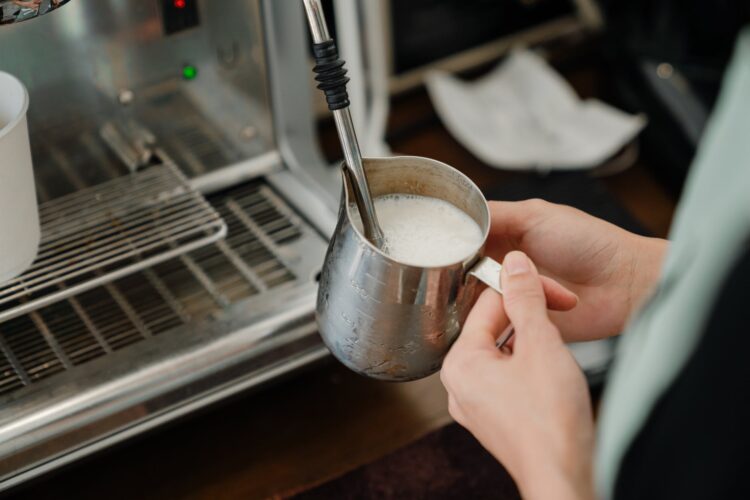In this article, we will explore the depths of instant coffee while trying to navigate through the pros and cons of the stuff. But ultimately, we want you to learn a little more about what some of us drink by the tonne every year.
Coffee is the go-to drink for millions of people all over the world. It’s healthier than soda, has next to no calories when drunk on its own, plus, it’s very cheap!
It can be jazzed up with syrups of all kinds of flavors, tall, short, dark roast, blonde roast, and it even comes caffeinated and decaffeinated depending on when you want to drink it.
A versatile beverage by anyone standards, and one that can add a bit of a boost to your day thanks to its caffeine content. But this can encourage some of us to drink quite a lot of it, especially if we require a bit more energy and concentration throughout the day.
If it’s cheap, tasty, and it gives you a bit of a boost, it’s no wonder we drink a lot of it. So, it would be a good idea to know your stuff:
How is it made?

It will come in various forms, usually granules or micro-ground beans. There are two methods of creation; One involves liquid coffee being sprayed in a fine mist into very hot air. By the time the water in the mist has evaporated, the leftovers hit the ground completely dry and ready to be processed.
The other process is freeze-drying, which forces frozen coffee water to vaporize without going through the liquid stage. This leaves behind a coffee powder that can then be reconstituted in water.
Instant coffee was created at the beginning of the 20th century by a chemist and a very passionate enthusiast. After many experiments, he made a crystalized coffee powder that is very similar to what is on our store shelves today.
Pros and Cons
Time

It’s in the name, so no points for guessing this one. Instant coffee is made (almost) instantly. Throw it into your cup, along with some sugar if you take it, add milk and hot water and you’re done.
Compared to preparing a coffee using ground beans, instant has finished the race before the percolator can even get a look in. No steeping, no pressing, no hassle. Easy.
With ground coffee, there’s a bit of a ritual to it, and this can take up to 5 minutes when waiting for your grounds to brew.
Flavor
In recent years, certain instant coffee manufacturers have upped their game. Some instant coffees are almost reaching up to the flavor profiles of ground beans. Almost.
Cheap instant coffee can taste like anything from burnt bark to sour soil. Even with half a tonne of sugar, it still tastes foul. More expensive variants have a much smoother, mellower flavor, allowing subtle chocolatey terpenes (what a plant creates, that gives it their taste and smell) like cafestol and kahweol to come through. Cheap coffees just don’t consider this.
Cost

Time is most definitely money, which makes it very affordable. You will notice that the prices shoot up in the ground coffee section, whereas you can buy what looks like barrels of instant coffee with the small change in your pocket.
Wastage
It leaves no waste, other than the packaging it came in.
Using ground coffee can create a lot of waste, and if you drink a lot of it, your bins will be filled with old coffee before you know it. However, it doesn’t have to go into the bin. It’s rich in nitrogen, which makes it great to throw around the garden patch or allotment, your plants will love it! It also makes for really good compost a year later.
Health benefits

Coffee can help your body function in more ways than just an energy boost. It’s been known to enhance brain function, boost metabolism, improve mental decrease diabetes risk.
It’s the main source of antioxidants in our modern-day diet. Oxidation is a chemical reaction that can produce free radicals – which cause cell damage throughout our bodies.
When consumed responsibly, it can act as a great way to balance your body’s delicate ecosystem. But the recommended number of cups for an average adult is between 3 and 5 per day. As long as you’re not drinking too many more cups than that, you can consider black sugar free coffee as a healthy addition to your diet.
High end speciality coffee
As with most products, there is always going to be “the best of the best”.
This inevitably brings out connoisseurs, specialists, and professionals. Tasting sessions in luxury boutique coffee shops are held all over the place for those that want to appreciate the true flavors of coffee. By using different methods of brewing, you can systematically experience all the flavors that one batch of coffee can offer.
If you ever want to learn about what flavors can be achieved with coffee, check out a “coffee flavor wheel”. It breaks down the different flavor profiles that are found in various roasts and brewing methods.
Is instant coffee better than ground coffee?
As you can probably tell, instant coffee has its perks. But only if time or cost is an issue.
For an extra few seconds of your time, and an extra few pennies from your bank account, you can take coffee drinking to new levels of flavors and caffeine rushes.
Drinking coffee made from freshly ground beans opens up countless doors to new coffee drinking experiences. It reaches places instant coffee simply can’t.
Freshly ground coffee unlocks the beans flavor, body and aromas, releasing flavors and notes of caramel, apricot, or pecan nuts. Through meticulous roasting and brewing, experimenting with aging, infusing, distilling, and nitrogenating, you give all the flavors freedom that cannot usually be tasted in instant coffee.
You can crush the coffee beans harvested from an isolated mountain five thousand feet up in Ethiopia, let it steep in hot water, and then appreciate a truly traditional drink that has been consumed and loved for the last five centuries; In exactly the same way as it was consumed back then.
That in itself is priceless.
As for the best instant coffee?
Find more out here: https://coffeeblog.co.uk/bestinstantcoffee/.
 Hi Boox Popular Magazine 2024
Hi Boox Popular Magazine 2024



